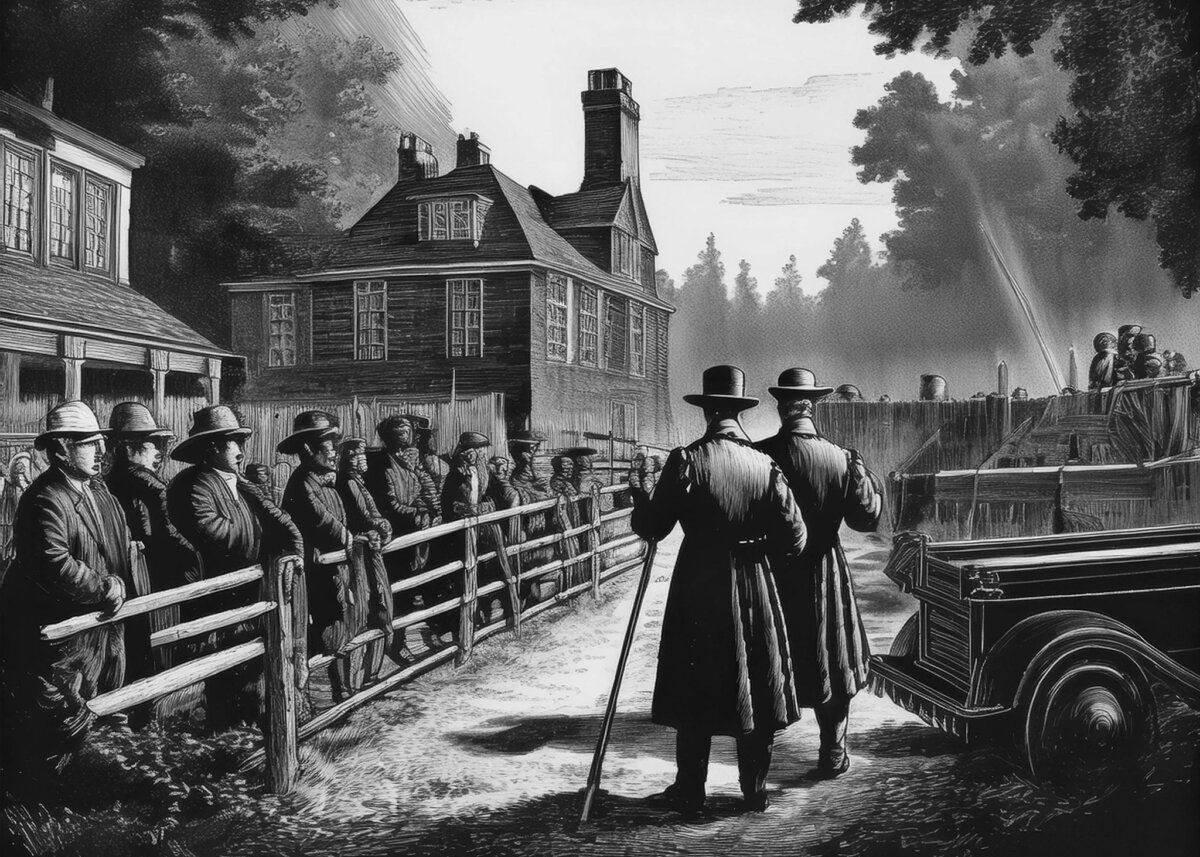The Evolution of Title Insurance: From 1868 to Today
Title insurance, an essential component of modern real estate transactions, has evolved significantly since its inception in 1868. This specialized form of insurance protects property buyers and lenders from financial loss due to property title defects, such as liens, fraud, or ownership disputes. Title insurance is an integral part of the real estate industry today. However, its origins and development are fascinating and critical to understanding its importance in contemporary transactions.
The Early Days of Title Insurance
The concept of title insurance can be traced back to the United States in the late 19th Century. Before title insurance, verifying property ownership and ensuring a clean title was a cumbersome and risky endeavor. Property buyers, lenders, and other stakeholders would rely on abstractors to search historical records and provide a summary or “abstract” of the title’s history. However, these abstractors were not liable for any inaccuracies or omissions in their research, leaving buyers vulnerable to undiscovered defects that could surface after the transaction was completed.
In 1868, real estate professionals established the first title insurance company in Pennsylvania, recognizing the need for a safer and more reliable way to secure property transactions. The company, named the “Real Estate Title Insurance Company,” was founded by a lawyer named George W. W. Heald. Heald and his colleagues understood that to create a stable and trustworthy real estate market, buyers needed more than just an abstract of title – they needed protection against potential legal issues that could arise after the transaction.
The Real Estate Title Insurance Company developed a groundbreaking model by offering policies to protect buyers and lenders against future claims or disputes over property ownership. This shift marked the beginning of modern title insurance. However, it took several years for the concept to gain widespread acceptance.
Early Challenges and Growth
In the years following its establishment, title insurance faced resistance from traditional real estate practices. Many real estate professionals were skeptical of the new insurance model and continued to rely on the abstract system. However, the promise of protection against financial loss, particularly in an era of land disputes and uncertain property records, gradually gained traction.
The demand for title insurance grew as the United States expanded westward in the late 19th and early 20th centuries. The rapid growth of urban centers and the development of railroads, industrial enterprises, and mining operations created a need for a reliable system to ensure property rights in areas where land ownership was often contested. Title companies expanded into these emerging markets, providing coverage for property transactions that involved complex ownership histories, unclear boundaries, and disputes over land titles.
During this period, title insurance also formalized its practices, with companies adopting standardized policies and creating industry guidelines. The first national title insurance company, the Chicago Title and Trust Company, was founded in 1876 and became one of the leading players in the industry. This period also saw the establishment of state regulations governing the title insurance business, which helped to provide a framework for the industry’s growth and legitimacy.
The Rise of Title Insurance in the 20th Century
By the early 20th Century, title insurance had become common in the United States. However, it was still not universally required in all real estate transactions. As cities expanded, the need for a more efficient system to handle the growing volume of property transactions became evident. This prompted the rise of larger title insurance companies, which began consolidating smaller firms and extending their operations across the country.
The Great Depression profoundly impacted the real estate industry in the 1920s and 1930s. Many property owners faced financial difficulties, and the housing market suffered from widespread foreclosures and bankruptcies. During this time, title insurance provided a critical safety net for lenders, ensuring they would be protected against losses in the event of a property title claim. This role of title insurance as a safeguard for financial institutions solidified its position as an essential part of real estate transactions.
After World War II, the American housing market boomed, spurred by a growing population, rising demand for homes, and the expansion of suburban neighborhoods. Title insurance played an increasingly critical role in ensuring that homebuyers and lenders could navigate the complexities of the real estate market. The rise of federally backed mortgage programs, such as those offered by the Federal Housing Administration (FHA) and the Veterans Administration (VA), further fueled the demand for title insurance, as these programs required title insurance to protect lenders from potential defects.
The 1980s and 1990s: Technological Advances and Industry Consolidation
The latter half of the 20th Century brought technological advancements that transformed the title insurance industry. In the 1980s, title companies began to adopt computer technology to streamline their operations, improving the efficiency of title searches, document management, and policy issuance. This was a crucial development as the real estate market became increasingly fast-paced and complex. Title companies could now process large volumes of transactions more quickly and accurately, reducing the risk of human error and enhancing customer service.
At the same time, the industry saw consolidation as larger title companies acquired smaller ones to expand their market share. This led to the formation of several large, nationwide title insurance companies that continue to dominate the industry today. Companies like First American Title, Fidelity National Title, and Stewart Title emerged as major players, further professionalizing the industry and increasing competition.
The 1990s also saw the rise of online services and the development of digital title searches, allowing buyers and lenders to access property records and title information more easily. As real estate transactions became more interconnected and data-driven, title insurance companies worked to stay ahead of the technological curve, offering innovative services to meet the demands of a rapidly changing market.
Title Insurance Today: A Modern Industry
Title insurance plays a vital role in real estate transactions in the 21st Century. The industry has fully embraced digital tools, including blockchain technology, to ensure greater security and transparency in property transactions. Electronic closings, where documents are signed and exchanged digitally, have become increasingly common, providing added convenience for buyers and sellers.
However, the core purpose of title insurance has remained unchanged: to protect buyers and lenders from potential title defects. While the industry has evolved to meet the challenges of a modern, technology-driven world, the foundational principles of title insurance—offering financial protection against claims, fraud, and errors in property titles—are as relevant today as they were in 1868.
Additionally, the role of title insurance has expanded in some jurisdictions to include more comprehensive services, such as the resolution of title disputes, assistance with foreclosure issues, and even coverage for matters related to zoning and land use. This evolution reflects the growing complexity of the real estate industry and the increasing demands of property buyers, lenders, and legal professionals.
Conclusion
From its humble beginnings in 1868 to its modern-day applications, title insurance has become an essential element of the real estate industry. What began as a solution to protect buyers and lenders from undiscovered title defects has become a sophisticated industry serving many needs. As technology reshapes the real estate landscape, title insurance will undoubtedly adapt. However, its core mission will remain to provide security and confidence in property transactions.
Learn more about our comprehensive title insurance services here.
Thank you for reading! If you enjoyed this article and want to explore more content on similar topics, check out our other blogs at Sonic Loans, Sonic Realty, and Sonic Title. We have a wealth of information designed to help you navigate the world of real estate and finance. Happy reading!
Title Issues Unique to Historic Properties
Vacant Land Title Insurance: What You Need to Know
Title Insurance for Condominiums: What’s Different?
Special Title Considerations for Commercial Properties
How Economic Changes Impact the Title Insurance Industry
Special Title Considerations for Commercial Properties
How Economic Changes Impact the Title Insurance Industry
Market Trends Affecting Title Insurance Rates
Digital Closings: The Future of Real Estate Transactions










